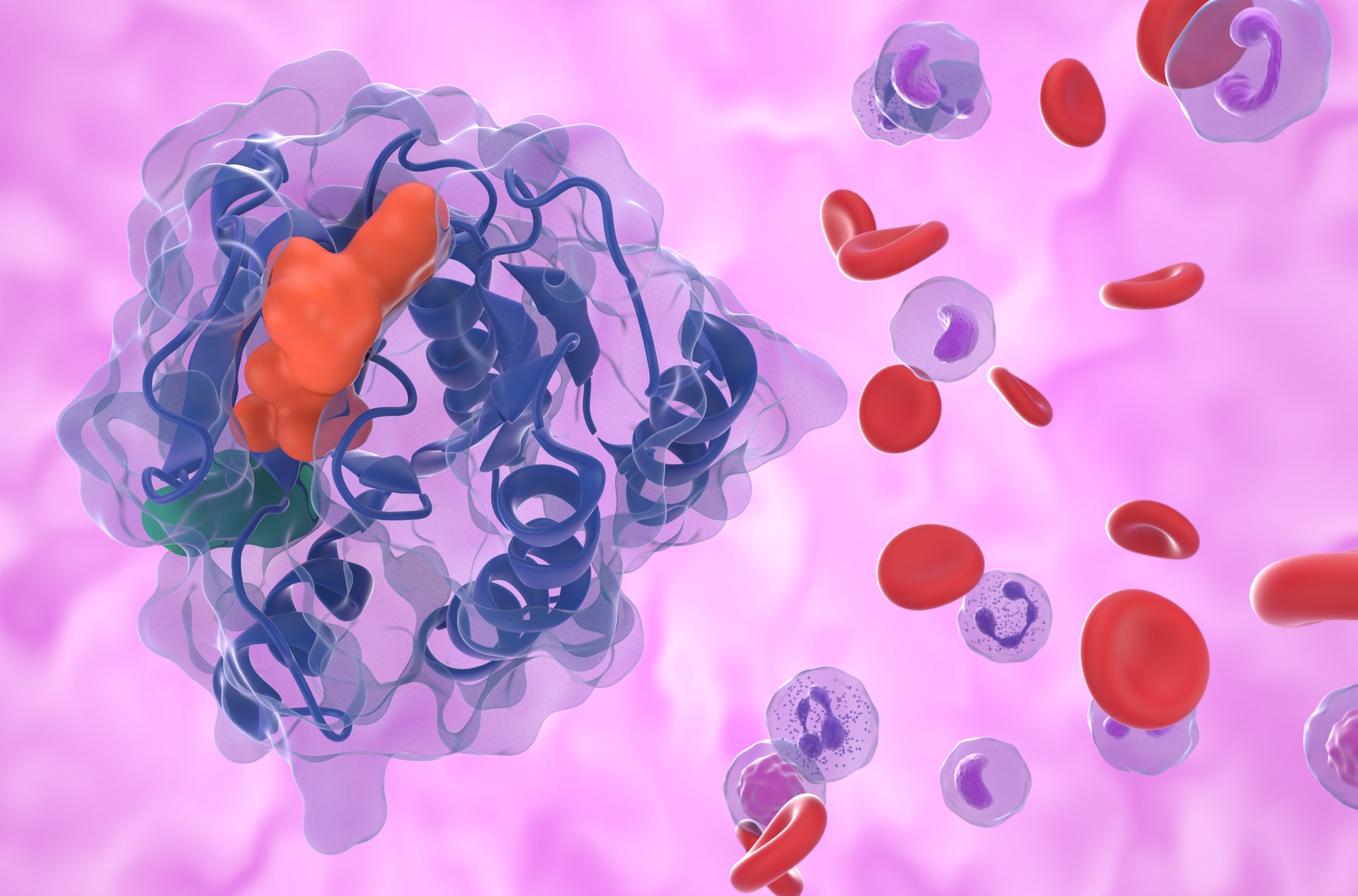While it’s not on the PBS, data is promising for lung and colorectal cancer patients and trials open to participants.
A new drug targeting G12C mutation is looking more potent than its predecessors, especially for lung and colorectal cancers, and Australian trials are currently open.
The single agent divarasib (Genentech) is a covalent KRAS G12C inhibitor that can be taken as a daily pill, with tolerable side-effects. In a paper published in the NEJM, researchers reported a confirmed response in 53% of lung cancer patients and 29% of colorectal cancer patients, and 13 months and almost six months progression free survival, respectively.
“In the last 40 or 50 phase I trials I’ve done in the last 15 years, in terms of how confident I am about what I’m seeing, it’s in the top three,” said Associate Professor Jayesh Desai, senior author and medical oncologist at Peter MacCallum Cancer Centre.
Out of 137 patients – 60 with non-small cell lung cancer, 55 with colorectal cancer, and 22 with other solid tumours – four discontinued treatment and 19 reduced their dose because of adverse events.
The rate of dose modification is a good indicator of the level of tolerability, said Professor Desai, and in this case it was “really low”.
Divarasib is not the first drug in its class. The TGA has already provisionally approved sotorasib (Lumakras, Amgen Australia) for the treatment of adult patients with KRAS G12C-mutated locally advanced or metastatic non-small cell lung cancer (NSCLC) who have received at least one prior systemic therapy for advanced disease, though it not yet on the PBS.
The FDA has recently approved adagrasib (Krazati, Mirati Therapeutics) for the treatment of solid tumours with KRAS G12C mutation, including NSCLC and colorectal cancer.
“The potency [of this drug] is a step ahead of where we have been with those first couple of drugs that have come out,” said Professor Desai, who was involved in the phase I trial of sotorasib. The response rate for colorectal cancer patients was around 40% with sotorasib and slightly higher for adagrasib.
There were around 20 sites internationally for phase I of the trial, including several in Australia, meaning Australian patients have had early access to the drug and can continue to do so in subsequent trials.
“It’s good for us to have a seat at that table working with the best new drugs that are coming. Because it means that we’ll get access to our patients earlier. The phase II and III studies that come out of this phase I trial will definitely come to Australia, because our investigators have played a lead role in getting this off the ground in the first place.”
Phase II trials will take place at a greater number of sites around the country, Professor Desai said.
KRAS is the most commonly found oncogene in cancer. KRAS G12C is a very important target for lung cancer, affecting about 14% of patients. In colorectal cancer it’s about 4%. But it’s much less common in some other cancers. For instance, the mutation is only present in 1% of people with pancreatic cancer.
Professor Desai said there was a “massive need” for treatments that targeted other KRAS mutations, such as KRAS G12 D or G12V, which were more common in bowel and pancreatic cancer, but they were more difficult to develop.
However, trials are underway, along with work on KRAS G12C inhibitors that combat resistance to existing treatments.
Meanwhile, the results for divarasib were likely to be “even more exciting” as a combination treatment, said Professor Desai. He presented data at the American Association for Cancer Research conference in April showing that 62% of the 29 colorectal cancer patients given divarasib and cetuximab together had a confirmed response.
“That’s not something that we’re used to at all. Most patients will benefit.”
There are no drugs in this class currently on the PBS, but there are several clinical trials open at the moment.
“If you can get access to a divarasib study, that’s great. The data looks really good. But frankly, if you can’t but you can get access to another KRAS G12 inhibitor through a trial, if it was my patient, I’d very strongly encourage them to do that.”


